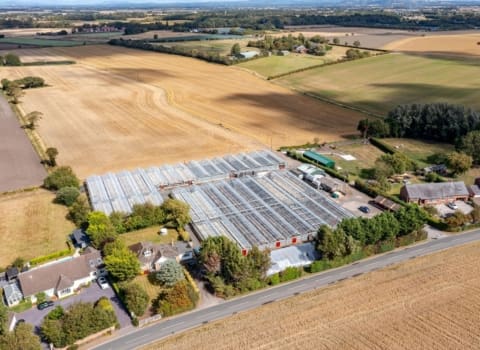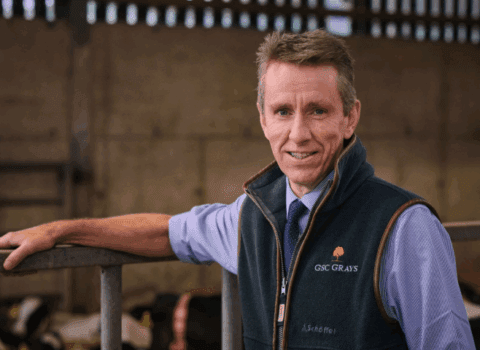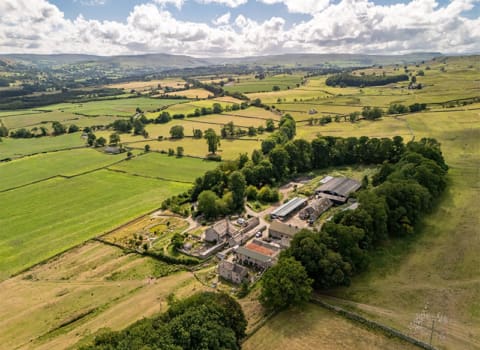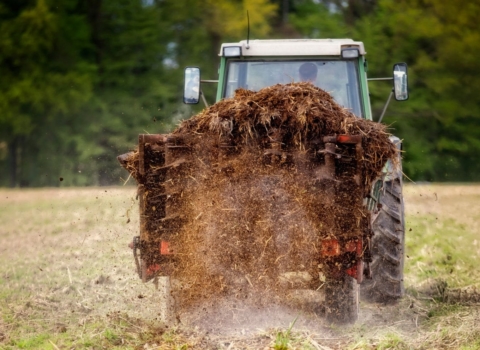Contact our offices
Main office
COLBURN
5 & 6 BAILEY COURT
COLBURN BUSINESS PARK
RICHMOND
NORTH YORKSHIRE
DL9 4QL
Estate Agency Offices are located in
BARNARD CASTLE, BOROUGHBRIDGE & RICHMOND
Residential Management Team
Our Offices
- Alnwick
01665 568310
Email Officealnwick@gscgrays.co.uk - Barnard Castle
01833 637000
Email Officebarnardcastle@gscgrays.co.uk - Boroughbridge
01423 590500
Email Officeboroughbridge@gscgrays.co.uk - Chester-Le-Street
0191 3039540
Email Officechester-le-street@gscgrays.co.uk - Colburn
01748 897630
Email Officecolburn@gscgrays.co.uk - Driffield
01377 337180
Email Officedriffield@gscgrays.co.uk - Hamsterley
01388 487000
Email Officehamsterley@gscgrays.co.uk - Hexham
01434 611565
Email Officehexham@gscgrays.co.uk - Kirkby Lonsdale
01524 880320
Email Officekirkbylonsdale@gscgrays.co.uk - Penrith
01768 597005
Email Officepenrith@gscgrays.co.uk

Capital Allowances: An opportunity not always exploited
Capital allowances provide a useful means of obtaining tax relief upon capital expenditure yet are often not fully utilised due to an element of ignorance within the property industry. By carefully planning capital expenditure and making the appropriate elections with HMRC businesses can reduce their tax liabilities, whilst those that ignore them will potentially over pay tax. The aim is to give tax relief for the reduction in value of certain capital assets bought for business use by writing off their cost against the taxable income of the business.
The allowances are available to sole traders, self-employed persons, partnerships as well as companies.
Annual Investment Allowance
The Annual Investment Allowance provides a 100% upfront allowance on the cost of most plant and machinery (including integral features). The annual limit on qualifying expenditure is currently set at £500,000 and this will last until 31st December 2015. At this date the limit is scheduled to fall to £25,000. The precise limits do depend on the accounting year end of a business, so advice needs to be taken in advance of any significant capital expenditure, but the current limit does provide good planning opportunities and does incentivise early expenditure on qualifying assets.
For farm businesses looking to invest in a new grain store and drying facilities or a state of the art dairy parlour for example, it is very much worth considering planning such expenditure to make the best use of the high annual investment allowances as they currently exist.
For expenditure above the annual investment allowance the rate of capital allowances will depend on the nature of the asset acquired:
Plant & Machinery
Tools, machinery, office equipment, computers, vehicles, plant and factory equipment, alarm systems, sewage treatment plants, sanitaryware and more can all potentially qualify for an annual writing down allowance of 18%.
Integral Features
Integral features such as hot and cold water installations, electrical/lighting systems, space or water heating systems, ventilation and air conditioning systems, lifts, thermal insulation, external thermal shading etc. can qualify for an annual writing down allowance of 8%.
Enhanced Capital Allowances
ECA provides tax allowances for energy saving products and offers a 100% first year allowance for certain energy saving plant and machinery. Qualifying assets can potentially have 100% of the cost written off against that year’s taxable profits.
Only new equipment is eligible for ECA with used or second hand equipment not qualifying. Details of the qualifying equipment are contained within the Energy Technology List (ETL), which includes for example:
- Air to air energy recovery
- Automatic monitoring and targeting equipment
- Boiler equipment
- Combined heat and power plants
- Compressed air equipment
- Heat pumps (air source, ground source/water source)
- Heating, ventilation and air conditioning
- Hand dryers
- High efficiency lighting systems
- Motors and drives
- Pipework insulation
- Refrigeration equipment
- Solar thermal systems
- Uninterruptible Power supplies
- Radiant and warm air heaters
Motor vehicles
Commercial vehicles that are used for a business will qualify for the annual investment allowance, but cars are treated separately and the rate of capital allowances depends upon the CO2 emissions. In the 2014/15 tax year brand new cars with the lowest emissions (lower than 95g/km) can qualify for 100% first year allowances, cars with less than 130g/km emissions attract 18% annual allowances and cars with over 130g/km emissions attract 8% annual allowances. In all cases any private use of vehicles reduces the allowances available on a pro rata basis.
New property purchase
From April 2012 if you purchase or sell a commercial/business property which contains fixtures (kitchen fittings, electrical heating systems etc) the vendor and purchaser must agree an apportionment of the purchase price attributable to the fixtures with a joint election notified to HMRC within 2 years of the of the date of transfer. If an agreement cannot be reached between the parties the matter can within 2 years be referred to a First Tier Tribunal for determination.
In the eventuality that a specified method of determining the values of the fixtures in the business has not been used then the purchaser will be unable to claim allowances on the expenditure. It is therefore imperative that surveyors, solicitors and accountants work in-conjunction with one another to ensure that any allowances are transferred on sale if possible so as not to prejudice the purchaser’s tax position.
Research & Development
If research and development relates to the trade operated by the business and meets other conditions it may qualify for a capital allowance of 100% for R & D.
Business Premises Renovation Allowance
Despite the Business Premises Renovation Allowance being introduced in April 2007 it still remains largely unknown and is scheduled to end in April 2017. BPRA covers expenditure on the conversion or renovation of unused business premises that bring them back into business use within “disadvantaged areas”. To qualify expenditure incurred on conversion, renovation or repairs to a commercial building or structure it must:
- Fall within an assisted area/disadvantaged area.
- Not have been used for any trading or business activities or offices for at least 1 year before the works begin.
- Be available for business or commercial use after the works have been completed (excludes agriculture).
- BPRA cannot be claimed on the costs of acquiring the land or extending the business premises.
An allowance of 100% of the entire qualifying expenditure can potentially be claimed.
Land Remediation Relief
Land remediation relief is available to UK companies and provides 150% of the value of qualifying expenditure to remediate land or buildings in a contaminated or derelict state. Removal of asbestos, contamination from hydrocarbons, heavy metals and Japanese Knotweed are all eligible. Not surprisingly developers often conveniently ignore or discount Land Remediation Relief in their negotiations with landowners and local authorities in negotiating land values and Section 106 contributions.
Furnished Holiday Lettings
Furnished Holiday Lets are treated as a trade for the purposes of Capital Allowances with furniture, white goods etc. qualifying. However, 10% “wear and tear” allowances which can be elected for rental properties cannot be adopted as an alternative.
Summary
The quantum of the capital allowances that can be claimed will ultimately depend on the specific allowance with businesses opting not to claim or to claim only a proportion as opposed to the full allowance. If a partial claim is made the balance of unrelieved expenditure can potentially be carried forward thus permitting an allowance to be claimed in a following financial year. Some expenditure can also qualify for more than one allowance although it is up to the individual business which allowance it actually claims. How you claim and the time limits depend on the status of the business i.e. whether it is constitutes a self-employed/sole trader, partnership or company.
Capital Allowances are a complex area and sadly they are all too often neglected but by seeking professional advice from solicitors, accountants and property consultants they can be effectively used to mitigate tax liabilities.
For further information please contact Ashley Dodgson tel: 01677 422400 email: acd@gscgrays.co.uk


GSC Grays News
Rare opportunity to purchase former plant nursery with development potential
Read more







